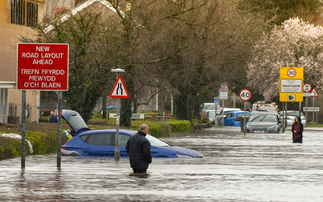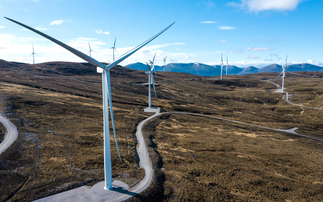New study explores how thousands of businesses, cities and regions are now signed up to supporting UN emission reduction goals
Efforts to deliver an international climate change agreement might be making characteristically slow progress at the UN's COP21 Summit in Paris, but the battalions of companies, cities and regions promising to deliver deep emissions reductions are expanding fast.
That is the conclusion of a new report released today by the Yale University's Data Driven Environmental Solutions initiative ahead of tomorrow's Action Day at COP21. The study attempts to add up the emission reduction commitments submitted to the UN by businesses, cities and regional governments through the Non-State Actor Zone for Climate Action (NAZCA) and Lima-Paris Action Agenda (LPAA) programmes. It calculates that promised emission reductions from over 10,000 non-national government organisations are now equivalent to the global emissions of the iron and steel sectors.
"The many thousands of governors, mayors, companies and investors who have so publicly committed to climate action are telling governments that our job in Paris is a climate change agreement that opens every possible door to help them push further and faster ahead," said Laurent Fabius, President of the Paris COP21 UN climate change conference and French foreign minister, in a statement.
However, he added that the study only captured emissions pledges from those regional governments and businesses that had submitted their climate action plans to the UN. "It is evident that this wonderful set of recorded climate actions is only a part of much wider, broader action towards a sustainable future," he said. "I know there are many tens of thousands of other climate initiatives out there and I welcome all who can to put their efforts, pledges and commitments on the record with us."
The study came as nearly 1,000 cities and global companies, including Paris, Chicago, Berlin and Los Angeles, threw their weight behind calls for the delivery of 100 per cent renewable energy by the middle of the century.
The Yale study found that 1,268 climate commitments from 1,192 cities and regions promised to deliver 2.7 gigatons of carbon dioxide equivalent (Gt CO2e) emission reductions, while 111 Global 500 companies have together committed to reducing their emissions by around 80 million tonnes.
However, it added that "the total mitigation potential of all of NAZCA's private sector actions (1,790 commitments) could be 10 times greater than that, since the Global 500 companies make up approximately one tenth of NAZCA's private sector commitments".
The report underlined how businesses and regional governments could deliver globally significant emissions reductions, alongside the promised national emissions reductions contained in the INDC action plans that have been submitted by governments.
The report said the cities and regions that have submitted climate action plans through NAZCA cover 17 per cent of the global population, while a third of the world's largest companies have made similar commitments through the UN platform.
UN climate chief Christiana Figueres said the commitments by non-government actors significantly increased the chances of the Paris Summit proving a success. "Government policies and actions alongside an ever growing number of companies, investors, cities, regions and provinces are aligning as never before," she said. "Collectively they do not yet keep us below a 2C temperature rise. But they keep that objective well within the affordable reach of humanity and they underwrite the truth that the clean energy transformation is already irreversible. Paris must trigger the next essential impetus towards that objective in terms of pace and scale.
"Indeed climate actions both outside and inside NAZCA bring a potent and powerful package of solutions to support a successful COP-21 Paris outcome and a way of transforming the INDCs into reality on the ground."
The new report followed the launch yesterday of an online comparison tool by the ECIU think tank that provides a portal for businesses and policy makers to assess countries' progress and pledges on climate change.
"This tool gives people the opportunity to uncover the facts behind the INDCs, to select their own metrics for comparing countries or blocks of countries, and uncover some hidden stories," said Richard Black, director of the ECIU.
This article is part of BusinessGreen's Road to Paris hub, hosted in association with PwC.








